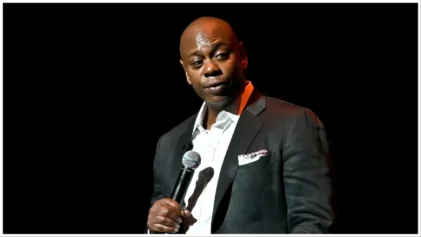In comments made to reporters in New York City this morning before his speech at the United Nations, Iranian President Mahmoud Ahmadinejad belittled any threats from Israel, saying that the relatively new nation has no history in the region and Iran would have no problem defending itself.
Though much of the coverage of his comments were characterized by the Western media as a threat to Israel—and fitting with the Western portrait of the Iranian president as an overly aggressive, unstable clown—the actual text of his words don’t appear to justify such stories. Particularly since he was speaking through an interpreter, reporters need to be extra careful when characterizing him. Reuters said that Ahmadinejad claimed Israel would be “eliminated,” but this is what the Iranian president actually said:
“Iran has been around for the last seven, 10 thousand years. They (the Israelis) have been occupying those territories for the last 60 to 70 years, with the support and force of the Westerners. They have no roots there in history,” he said. “We do believe that they have found themselves at a dead end and they are seeking new adventures in order to escape this dead end. Iran will not be damaged with foreign bombs.”
“We don’t even count them as any part of any equation for Iran. During a historical phase, they represent minimal disturbances that come into the picture and are then eliminated,” Ahmadinejad added.
The comments seem to suggest he is saying in the historical context of 7,000 to 10,000 years of Iranian and Persian history, Israel represents a “minimal disturbance” that comes along at some point and then is eliminated. He’s not necessarily implying that Iran would seek to eliminate Israel.
Israeli Prime Minister Benjamin Netanyahu has hinted that Israel could strike Iran’s nuclear sites. Netanyahu has shown impatience and annoyance with the Obama administration for suggesting that sanctions and diplomacy should be given more time to stop Iran from acquiring nuclear weapons.
Iran denies that it is seeking nuclear arms and says its atomic work is peaceful, aimed at generating electricity.
“Fundamentally we do not take seriously the threats of the Zionists. … We have all the defensive means at our disposal and we are ready to defend ourselves,” Ahmadinejad told reporters in New York.
“While we are fully ready to defend ourselves, we do not take such threats seriously,” he said, speaking through an interpreter.
Since Ahmadinejad called Israel a “tumor” a tumor seven years ago and repeated the words of the former Iranian Supreme Leader, Ayatollah Ruhollah Khomeini, that Israel should be wiped off the map, the West has continually fanned the flames of hostility between the two nations.
Amir Ali Hajizadeh, a brigadier general in Iran’s Islamic Revolutionary Guard Corps, was quoted on Sunday as saying that Iran could launch a pre-emptive strike on Israel if it was sure the Jewish state was preparing to attack it.
Ahmadinejad said the nuclear issue was one ultimately between the United States and Iran, and must be resolved with negotiations.
“The nuclear issue is not a problem. But the approach of the United States on Iran is important. We are ready for dialogue, for a fundamental resolution of the problems, but under conditions that are based on fairness and mutual respect,” he said.
“We are not expecting a 33-year-old problem between the United States and Iran to be resolved in a speedy fashion. But there is no other way besides dialogue.”
During his news conference, Ahmadinejad also talked about California-made anti-Islam video, “The Innocence of Muslims,” that has sparked anti-American protests around the Muslim world. While the U.S. has leaned heavily on the American ideal of freedom of speech, the Iranian leader offered another perspective.
“Freedoms must not interfere with the freedoms of others,” Ahmadinejad said. “If someone insults, what would you do? … Is insulting other people not a form of crime?”
While the clamor over the movie represents a classic collision of two world views, it should also be noted that of the planet’s 1.5 billion Muslims, those protesting the movie make up an extremely tiny fraction.
Ahmadinejad also was asked about a move by an Iranian religious foundation to increase its reward for the killing of British author Salman Rushdie.
“Where is he now?” Ahmadinejad asked of Rushdie. “Is he in the United States? If he is, you shouldn’t broadcast that for his own safety.”
Rushdie was condemned to death in 1989 by Khomeini over his novel “The Satanic Verses,” saying its depiction of the Prophet Mohammad was blasphemous.


